September 11, 2017 •
Secretary of State Adopts New Campaign Finance Rules for New Mexico
On September 8, 2017, Sec. of State Maggie Toulouse Oliver adopted campaign finance rules after three months of public hearings and reviews. Oliver introduced the rules to clarify New Mexico’s Campaign Reporting Act (CRA) and bring the CRA into constitutional […]
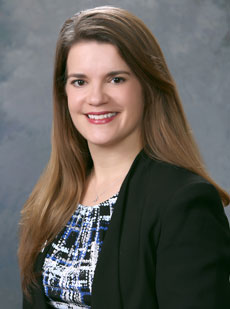 On September 8, 2017, Sec. of State Maggie Toulouse Oliver adopted campaign finance rules after three months of public hearings and reviews.
On September 8, 2017, Sec. of State Maggie Toulouse Oliver adopted campaign finance rules after three months of public hearings and reviews.
Oliver introduced the rules to clarify New Mexico’s Campaign Reporting Act (CRA) and bring the CRA into constitutional compliance.
Under the new rules, independent expenditure groups will be required to disclose their significant donors if they expend on any single political advertisement more than $2,500 for a statewide race or more than $1,000 on any non-statewide race.
The rules will be effective October 10, 2017, and are available at the secretary of state’s website.
September 11, 2017 •
Campaign Finance Riders in House Financial Services Appropriations Bill
Several provisions added last week to the House Financial Services appropriations bill would alter some federal campaign laws. The legislation would prevent some charitable 501(c)(3) organizations such as churches from losing their tax-exempt status for making contributions to candidates. The […]
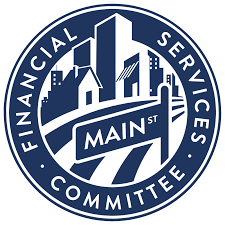 Several provisions added last week to the House Financial Services appropriations bill would alter some federal campaign laws.
Several provisions added last week to the House Financial Services appropriations bill would alter some federal campaign laws.
The legislation would prevent some charitable 501(c)(3) organizations such as churches from losing their tax-exempt status for making contributions to candidates. The bill would also allow corporations greater latitude in soliciting employees to contribute to political action committees.
The riders to the bill also include provisions prohibiting the IRS from enacting rules governing political activity and prohibiting the SEC from implementing rules requiring corporations to report to its shareholders a corporation’s political campaign activities.
A further change to campaign finance law in the appropriation bill would bar the use of funds to recommend or require any entity submitting an offer for a federal contract to disclose specified political contributions as a condition of submitting the offer.
The appropriations and other finance bills are expected to be debated this and next week in the House.
September 11, 2017 •
Special Elections Announced in Georgia
Several special elections have been called in Georgia to fill vacancies in the state legislature. The openings are in the following districts: House Districts 42, 89, and 119; and Senate Districts 6 and 39. The general elections will take place […]
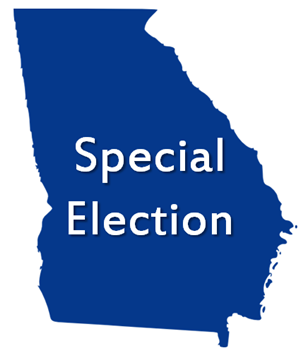 Several special elections have been called in Georgia to fill vacancies in the state legislature. The openings are in the following districts: House Districts 42, 89, and 119; and Senate Districts 6 and 39.
Several special elections have been called in Georgia to fill vacancies in the state legislature. The openings are in the following districts: House Districts 42, 89, and 119; and Senate Districts 6 and 39.
The general elections will take place on November 7, 2017. A special election, already set last month, for House District 117 will take place on the same day.
Reps. Stacey Evans (House District 42), Stacey Abrams (House District 89), and Sen. Hunter Hill (Senate District 6) resigned their seats to focus on their gubernatorial campaigns.
Rep. Chuck Williams resigned his House District 119 seat to become the director of the Georgia Forestry Commission.
Sen. Vincent Fort resigned from his Senate District 39 seat to run for mayor of Atlanta.
Special runoff elections, if necessary, will be held on December 5.
September 11, 2017 •
Monday’s Government and Ethics News
Campaign Finance New Mexico: New Campaign Spending Rules to Take Effect by Dan Boyd for Albuquerque Journal New York: Firm Uses Loophole to Secretly Donate $60G to de Blasio Campaign, Lobbying Records Show by James Fanelli for New York Daily […]
 Campaign Finance
Campaign Finance
New Mexico: New Campaign Spending Rules to Take Effect by Dan Boyd for Albuquerque Journal
New York: Firm Uses Loophole to Secretly Donate $60G to de Blasio Campaign, Lobbying Records Show by James Fanelli for New York Daily News
Ethics
Mueller Gives White House Names of 6 Aides He Expects to Question in Russia Probe by Carol Leonnig, Rosalind Helderman, and Ashley Parker for Washington Post
Kentucky: Legislative Sex Harassment Case Spurs Call for Change in Kentucky’s Ethics Law by Jack Brammer for Lexington Herald-Leader
Elections
On Facebook and Twitter, a Hunt for Russia’s Meddling Hand by Scott Shane for New York Times
In Free-Range Trump, Many See Potential for a Third Party by Jeremy Peters for New York Times
Lobbying
Canada: Quebec’s Lobbyist Registry Best in Canada, Though All Struggle in Key Transparency Metrics: Study by Marco Vigliotti for The Hill Times
Virginia: Virginia Lawmakers Attend Fewest Lobbyist-Paid Entertainment Events Since McDonnell Case by Will Houp for Virginian-Pilot
Procurement
Illinois: Aldermen Take Another Stab at Relaxing Ethics Rules for Contractors by Fran Spielman for Chicago Sun-Times
September 8, 2017 •
NYCU Video Digest – September 8, 2017
Becky is coming to you from the Content Marketing World 2017 conference in Cleveland, Ohio with this week’s News You Can Use Video Digest!
Becky is coming to you from the Content Marketing World 2017 conference in Cleveland, Ohio with this week’s News You Can Use Video Digest!
September 8, 2017 •
Ask the Experts – Lobbyist Reporting
Q: I have been out of the office on an extended vacation. I just noticed a reminder e-mail that I have a lobbying report due today that cannot be filed electronically. What are my options? A: You still have the ability to […]
 Q: I have been out of the office on an extended vacation. I just noticed a reminder e-mail that I have a lobbying report due today that cannot be filed electronically. What are my options?
Q: I have been out of the office on an extended vacation. I just noticed a reminder e-mail that I have a lobbying report due today that cannot be filed electronically. What are my options?
A: You still have the ability to submit the report in a timely manner. Your first step should be to confirm the reportable activity for your report. If it is your lobbyist report, check your calendar or records to see whether you lobbied during the reporting period. If the report is for your employer, you must review not only your activity, but possibly information for a contract lobbyist as well…
Click here to read the full article…
September 8, 2017 •
News You Can Use Digest – September 8, 2017
National: Software Glitch or Russian Hackers? Election Problems Draw Little Scrutiny New York Times – Nicole Pearlroth, Michael Wines, and Matthew Rosenberg | Published: 9/1/2017 After a presidential campaign scarred by Russian meddling, local, state, and federal agencies have conducted […]

National:
Software Glitch or Russian Hackers? Election Problems Draw Little Scrutiny
New York Times – Nicole Pearlroth, Michael Wines, and Matthew Rosenberg | Published: 9/1/2017
After a presidential campaign scarred by Russian meddling, local, state, and federal agencies have conducted little of the type of digital forensic investigation required to assess the impact, if any, on voting in at least 21 states whose election systems were targeted by Russian hackers. The assaults on the vast back-end election apparatus – voter-registration operations, state and local election databases, e-poll books, and other equipment – have received far less attention than other aspects of the Russian interference, such as the hacking of Democratic emails and spreading of false or damaging information about Hillary Clinton. Yet the hacking of electoral systems was more extensive than previously disclosed.
Statehouses, Not Congress, Hosting Biggest Political Money Fights
Center for Public Integrity – Ashley Balcerzak | Published: 8/31/2017
Lawmakers in at least 18 states have introduced legislation this year to change the amount of money people can give to politicians. Half of the bills aim to increase contribution limits in attempts to keep pace with the rising number of outside forces that can spend unlimited amounts of cash. The other half try to decrease the limits to blunt the amount of money in politics. Meanwhile, national coalitions have swarmed statehouses and city halls. They are targeting disclosure laws, pay-to-play and lobbying rules, and the role corporations, unions, and nonprofits may play in elections, in addition to fundraising limits.
Federal:
A Two-Decade Crusade by Conservative Charities Fueled Trump’s Exit from Paris Climate Accord
Washington Post – Robert O’Harrow Jr. | Published: 9/5/2017
The story behind the Cooler Heads Coalition – an umbrella group in the vanguard of efforts to cast doubt on the gravity of climate change and thwart government efforts to address it – illuminates the influential, little-known role that tax-exempt public charities play in modern campaigns to sway lawmakers and shape policy while claiming to be nonpartisan educational organizations. It also offers insight into the forces behind a decision by President Trump that infuriated scientists and environmentalists, mystified U.S. allies, and went against the advice of some major corporations.
Democrats Say ‘Citizens United’ Should Die. Here’s Why That Won’t Happen.
Center for Public Integrity – Sarah Kleiner | Published: 8/31/2017
Seizing on the specter of Russian election influence, Democrats have ramped up their quixotic effort to blunt Citizens United v. Federal Election Commission, which unleashed a torrent of special interest spending on U.S. elections. They have introduced two dozen bills related to money in politics. Some are aimed at increasing donor transparency, others are targeting massive contributions from special interests. A couple are intent on reforming the FEC. None have had a single formal hearing, much less an up-or-down vote in either the House or Senate.
Trump Gets Millions from Golf Members. CEOs and Lobbyists Get Access to President
USA Today – Brad Heath, Fredreka Schouten, Steve Reilly, Nick Pezenstadler, and Aamer Madhani | Published: 9/6/2017
Members of clubs that Donald Trump owns and has visited most often as president include at least 50 executives whose companies hold federal contracts and 21 lobbyists and trade group officials. Two-thirds played on one of the 58 days Trump was there. A USA Today shows that for the first time in U.S. history, wealthy people with interests before the government have a chance for close and confidential access to the president as a result of payments that enrich him personally. The arrangement is legal, and members said they did not use the clubs to discuss government business. Nonetheless, ethics experts questioned whether it is appropriate for a sitting president to collect money from lobbyists and others who spend their days trying to shape federal policy or win government business.
From the States and Municipalities:
California
SF’s Political Watchdog Agency Proposes Sweeping Reforms, Nonprofits Cry Foul
San Francisco Examiner – Joshua Sabitini | Published: 9/4/2017
The San Francisco Ethics Commission is taking on the notorious “pay-to-play” culture at City Hall with proposed sweeping reforms. But some of the provisions have drawn the ire of nonprofits that warn it will deal a significant blow to their fundraising. One provision being discussed in the reform package would prohibit city commissioners from helping to raise money for candidates. Many nonprofit leaders blasted a portion of the sweeping reforms that would restrict so-called behested payments, which are contributions made to groups or causes at the request of elected officials.
Colorado
Denver Proposal Aims to Force Disclosure of Independent Spending in Elections as ‘Dark Money’ Trickles Down
Denver Post – Jon Murray | Published: 9/4/2017
A Denver City Council proposal seeks to close transparency gaps that allow “dark money” to go unreported as long as the people behind it do not coordinate directly with a candidate’s campaign. The proposal would adopt the state definitions of “independent expenditure” and “electioneering communication.” The individual, company, or other group behind the independent spending would have to file public reports within two days after more than $1,000 is spent, including disclosing anyone who gives more than $25 to the effort. They also would have to make clear on any mailers, broadcast ads, or other advertising who paid for them and the independence from the candidate’s or issue’s official campaign. The proposal also would modify the city’s campaign finance ordinance in other ways.
Maryland
Facing Minor Fine, Hogan Campaign Lawyer Threatens Attorney General Frosh
Washington Post – Fenit Nirappil | Published: 8/31/2017
Maryland Gov. Larry Hogan’s re-election campaign could be hit with a $250 fine for a minor violation of state election law, an inconvenience that has erupted into a partisan brawl. Hogan’s campaign attorney, Dirk Haire, who also chairs the Maryland Republican Party, will ask the state prosecutor’s office to launch an official misconduct investigation if state Attorney General Brian Frosh does not act to block the fine, which was proposed by staffers at the Board of Elections in response to a complaint from Maryland Democratic Party Chairperson Kathleen Matthews. Haire is also threatening to file a complaint alleging Frosh’s campaign illegally charged children for ice cream at a fundraiser.
Missouri
Councilwoman Repays Lobbyist, Concerned over Gifting
St. Joseph News-Press – Brendan Welch | Published: 9/6/2017
St. Joseph City Council Member Joyce Starr presented a check to a local lobbyist during a council meeting to avoid taking what she considered to be an unethical gift. Starr said council members often go out in a group after meetings to HiHo Bar and Grill, and Kenneth Reeder, a local political activist and lobbyist, is usually in attendance. She said after the August 11 council meeting, she discovered Reeder was being repaid for purchasing them dinner and drinks, and was not comfortable with it. Starr said the check was only for four dollars, “but it’s just the principle of the thing.”
South Carolina
Rep. Jim Merrill Pleads Guilty to Misconduct, Agrees to Assist Investigators in Statehouse Corruption Probe
Charleston Post and Courier – Glenn Smith and Andrew Brown | Published: 9/1/2017
South Carolina Rep. Jim Merrill pleaded guilty to using his office for personal profit, resigned his seat in the Legislature, and was sentenced to one year of probation. The plea agreement requires him to cooperate with state investigators and the FBI as they continue to probe corruption at the statehouse. Merrill was accused of using his office and his consulting firm to garner more than $1 million from trade groups and companies at a time when he was both a lawmaker and a consultant. He failed to report money he received from companies and groups that lobby legislators, did not file reports of campaign-related spending from the House Republican Caucus, and overcharged for his work.
Texas
Court: Texas Can Enforce New Voter ID Law in November
Governing – Allie Morris | Published: 9/6/2017
A federal appeals court panel ruled Texas can use its revised voter ID measure for the upcoming November elections, the latest in a series of winding legal battles on whether the state has intentionally discriminated against black and Latino voters through its original law passed in 2011 In August, U.S. District Court Judge Nelva Gonzales Ramos threw out Senate Bill 5, which the state Legislature passed earlier this year and in some ways softened the previous requirements that Texans present one of seven forms of photo ID at the polls in order to cast a ballot. Ramos said the state’s new voter ID law failed to fix the intentional discrimination against minority voters found in a 2011 law. The stay suspends that order until the appeals court can hear the merits for and against the state’s appeal.
Texas
Fred Lewis Appointment Stirs Controversy
Austin Monitor – Jo Clifton | Published: 9/1/2017
Fred Lewis, an attorney who served as the main architect of Austin’s new lobbying ordinance, surprisingly became the center of a controversy when the city council appointed him to serve on the Charter Review Commission. Lewis worked for many months on an ordinance specifically aimed at preventing lobbyists from serving on city commissions.
West Virginia
Charge Dropped Against Reporter Who Questioned Tom Price
New York Times – Matt Stevens | Published: 9/6/2017
West Virginia prosecutors dropped charges against a reporter who was arrested after peppering U.S. Health and Human Services Secretary Tom Price with healthcare policy questions while following him down a hallway at the Capitol. Prosecutors said the reporter, Dan Heyman, broke no laws. Heyman was arrested and jailed for willful disruption of state government processes. The arrest drew condemnation from civil rights and journalists’ rights groups, who said Heyman was merely performing his constitutionally protected duties.
Wisconsin
Report: New Ethics Commission has conducted just 1 investigation, says compliance is up
Wisconsin State Journal – Mark Sommerhauser | Published: 9/3/2017
A new report shows Wisconsin’s Ethics Commission investigated just one alleged violation in its first year of operation. That is a far less active pace than its predecessor, the Government Accountability Board (GAB). Republican lawmakers and Gov. Scott Walker created the Ethics Commission, saying the GAB was too partisan. Much of the new commission’s workings are shrouded by law. Hidden from public view are complaints alleging violations of ethics, campaign finance, or lobbying laws, as well as deliberations by the commission on whether to investigate complaints.
 State and Federal Communications produces a weekly summary of national news, offering more than 60 articles per week focused on ethics, lobbying, and campaign finance.
State and Federal Communications produces a weekly summary of national news, offering more than 60 articles per week focused on ethics, lobbying, and campaign finance.
September 7, 2017 •
Bucket of States to Still Visit
Writing a monthly column doesn’t come easy for me…I want to find something to pique your interest but not make you fall asleep reading. I was kind of stuck waiting until the 11th hour to write the column when I […]
Writing a monthly column doesn’t come easy for me…I want to find something to pique your interest but not make you fall asleep reading. I was kind of stuck waiting until the 11th hour to write the column when I thought I would see what I wrote in previous Septembers. (So now you will all know I am a technological pack rat and save everything I have written.)
In 2014—three years ago I still have seven (7) states to visit in this country. Now, I know those of you who follow me on Facebook cannot believe I have not been to all 50 states. I had not completed it by 2014 and I am sorry to say I still have not reached the goal.
I really thought I could knock off South Dakota with Sen. Deb Peters at the NCSL Executive Committee meeting in October but it conflicts with a few other events that week and I cannot get there. There is still a chance I can knock this off by taking a US vacation to see Mount Rushmore.

Back to the subject. I am now down to the Final Four!!!
- Alabama
- Montana
- South Dakota
- Wyoming
What are your outstanding ones? And, if any of you have Ohio on that list, you need to call me to attend any of a number sporting events—Cleveland Browns, Cleveland Indians, Cleveland CAVS, Akron Rubber Ducks, or a visit to the Rock and Roll Hall of Fame. I also have season tickets to the home games to Kent State University Golden Flashes. #flashesforever
I have a new goal and there is a new year coming up…Let’s do it!
Until next month, put your list together of states still left to see and hit the road.
President and CEO
@elizabethbartz
September 7, 2017 •
Indiana Republicans Choose Replacement for Retiring State Senator
Indiana State Sen. Luke Kenley is retiring effective September 30. He represented Senate District 20 for 25 years, and was re-elected in November 2016. On September 6, a Republican caucus selected Victoria Spartz, current chief financial officer of the Attorney […]
 Indiana State Sen. Luke Kenley is retiring effective September 30. He represented Senate District 20 for 25 years, and was re-elected in November 2016.
Indiana State Sen. Luke Kenley is retiring effective September 30. He represented Senate District 20 for 25 years, and was re-elected in November 2016.
On September 6, a Republican caucus selected Victoria Spartz, current chief financial officer of the Attorney General’s Office, to replace Kenley and serve the remaining three years of his term.
Senate District 20 covers portions of Grant, Hamilton, Madison, and Tipton counties.
September 7, 2017 •
Trump Nominates FEC Commissioner for Federal Judgeship
On September 7, President Donald J. Trump nominated Matthew Spencer Petersen, a commissioner with the Federal Election Commission (FEC), to serve as a District Judge on the U.S. District Court for the District of Columbia. Petersen, a Republican, is one […]
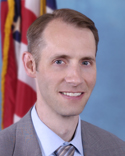 On September 7, President Donald J. Trump nominated Matthew Spencer Petersen, a commissioner with the Federal Election Commission (FEC), to serve as a District Judge on the U.S. District Court for the District of Columbia. Petersen, a Republican, is one of the five remaining FEC commissioners.
On September 7, President Donald J. Trump nominated Matthew Spencer Petersen, a commissioner with the Federal Election Commission (FEC), to serve as a District Judge on the U.S. District Court for the District of Columbia. Petersen, a Republican, is one of the five remaining FEC commissioners.
Without Peterson, the FEC will have only four of the six required commissioners serving, all with expired terms. With Petersen’s absence from the FEC there will remain two registered members of the Republican Party, one registered member of the Democratic Party, and one Independent, Chairman Steven T. Walther.
The FEC requires at least four commissioners to agree for any official action. A replacement for Petersen will be selected by the president and then confirmed by the U.S. Senate. No more than three members of the FEC may be registered with the same political party.
September 7, 2017 •
State and Federal Communications August Scrapbook
Check out these photos from a busy August at State and Federal Communications!
Check out these photos from a busy August at State and Federal Communications!

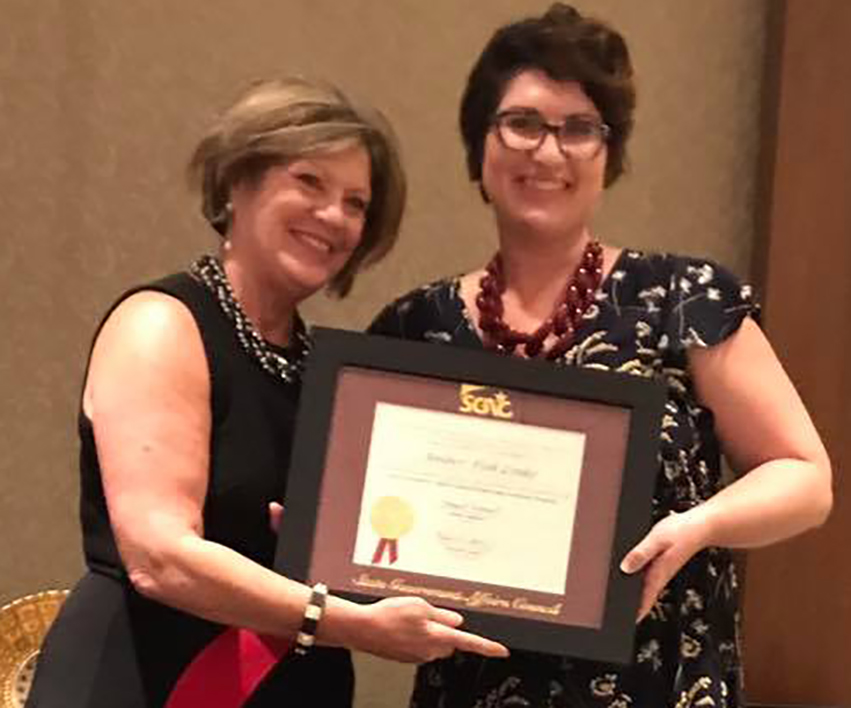
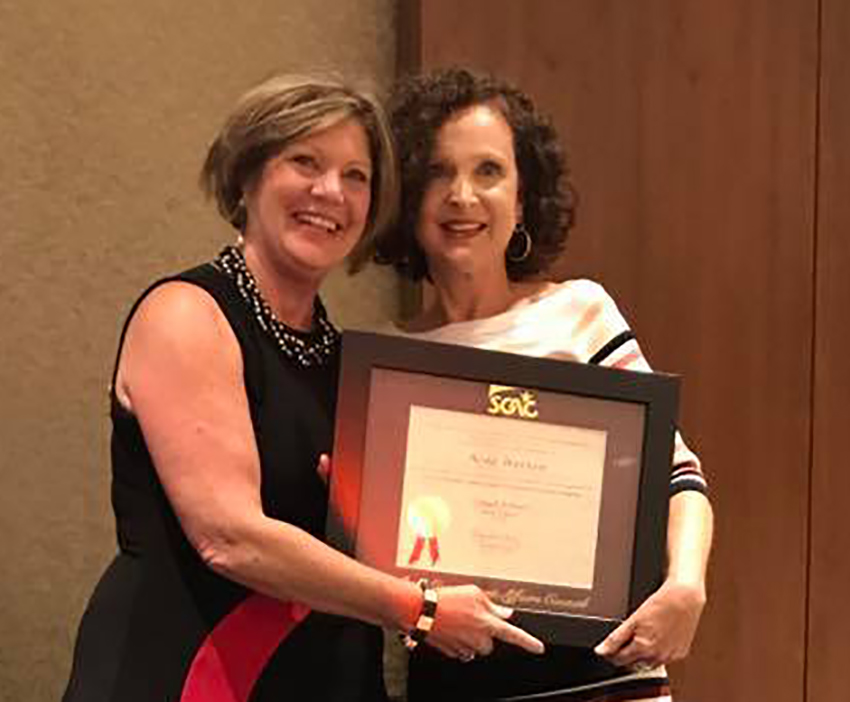
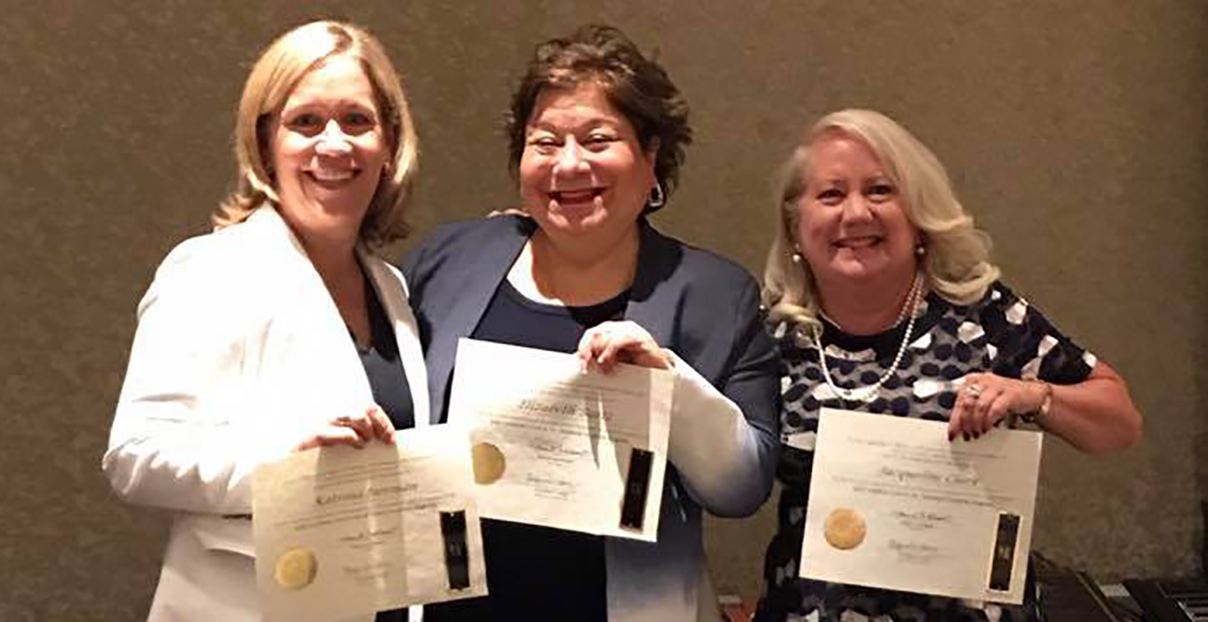
September 7, 2017 •
Thursday’s Government and Ethics News
Lobbying “A Two-Decade Crusade by Conservative Charities Fueled Trump’s Exit from Paris Climate Accord” by Robert O’Harrow Jr. for Washington Post Florida: “Hernando Commission to Debate Ordinance Requiring Lobbyists to Register” by Barbara Behrendt for Tampa Bay Times Campaign Finance […]
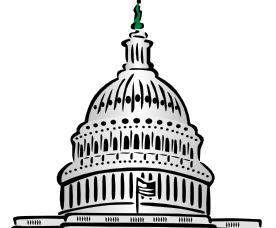 Lobbying
Lobbying
“A Two-Decade Crusade by Conservative Charities Fueled Trump’s Exit from Paris Climate Accord” by Robert O’Harrow Jr. for Washington Post
Florida: “Hernando Commission to Debate Ordinance Requiring Lobbyists to Register” by Barbara Behrendt for Tampa Bay Times
Campaign Finance
“Facebook Says It Sold Political Ads to Russian Company During 2016 Election” by Carol Leonnig, Tom Hamburger, and Rosalind Helderman for Washington Post
Montana: “Gov. Bullock Settles Campaign Violation Over State Airplane for $3,000” by Tom Lutey for Billings Gazette
New Mexico: “New Mexico Candidate Seeks Court Injunction to Access Cash” by Morgan Lee (Associated Press) for U.S. News & World Report
Ethics
“Trump Gets Millions from Golf Members. CEOs and Lobbyists Get Access to President” by Brad Heath, Fredreka Schouten, Steve Reilly, Nick Pezenstadler, and Aamer Madhani for USA Today
California: “Prosecution Freezes Assets of Fired Centinela Superintendent Facing Embezzlement Charges” by Larry Altman for Los Angeles Daily Breeze
Connecticut: “Ex-Hartford Mayor Eddie Perez Pleads Guilty to Bribe Receiving, Attempted Larceny; Spared Prison” by David Owens and Jenna Carlesso for Hartford Courant
Florida: “Prosecutors Had 5 Years to Charge ex-U.S. Rep. David Rivera. Now Time Has Run Out.” by Patricia Mazzei for Miami Herald
Georgia: “Reed to Ethics Board: ‘I don’t have an ax to grind’” by Nicole Carr for WSB
Elections
“Software Glitch or Russian Hackers? Election Problems Draw Little Scrutiny” by Nicole Pearlroth, Michael Wines, and Matthew Rosenberg for New York Times
Texas: “Court: Texas Can Enforce New Voter ID Law in November” by Allie Morris for Governing
September 6, 2017 •
LNC File Suit Against FEC: Contribution Limits on Bequests
On September 5, the Libertarian National Committee (LNC) filed a lawsuit arguing federal contribution limits of bequests are unconstitutional. In Libertarian National Committee v. Federal Election Commission, filed in the U.S. District Court for the District of Columbia, the LNC […]
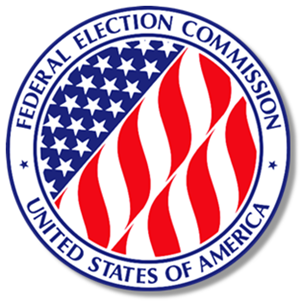 On September 5, the Libertarian National Committee (LNC) filed a lawsuit arguing federal contribution limits of bequests are unconstitutional.
On September 5, the Libertarian National Committee (LNC) filed a lawsuit arguing federal contribution limits of bequests are unconstitutional.
In Libertarian National Committee v. Federal Election Commission, filed in the U.S. District Court for the District of Columbia, the LNC argues federal political contribution limits applied to bequests, in the absence of any evidence of corruption, violate the First Amendment of the U.S. Constitution. The LNC also claims Congress cannot regulate “the content of a political party’s expression under the guise of combating corruption.”
In 2014, the LNC was bequeathed $235,575 by a party contributor when he died. The Federal Election Commission’s position is the money must be dispersed in the amount of $33,900 a year. The LNC is asking its proposed facts and questions be certified to the en banc D.C. Circuit.
September 6, 2017 •
California Governor Signs Two Bills Amending the Political Reform Act of 1974
Gov. Jerry Brown signed Assembly Bill 187 and Assembly Bill 551 into law on September 1, amending both lobbying and campaign finance laws. Assembly Bill 187 requires a committee to file a report within 10 business days of making a […]
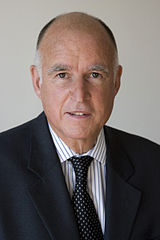 Gov. Jerry Brown signed Assembly Bill 187 and Assembly Bill 551 into law on September 1, amending both lobbying and campaign finance laws.
Gov. Jerry Brown signed Assembly Bill 187 and Assembly Bill 551 into law on September 1, amending both lobbying and campaign finance laws.
Assembly Bill 187 requires a committee to file a report within 10 business days of making a contribution or independent expenditure aggregating $5,000 or more to support or oppose the qualification of a single local initiative or referendum ballot measure.
Assembly Bill 551 extends revolving door restrictions to independent contractors of a local government agency or a public agency who are appearing or communicating on behalf of that agency.
Both bills are effective January 1, 2018.
State and Federal Communications, Inc. provides research and consulting services for government relations professionals on lobbying laws, procurement lobbying laws, political contribution laws in the United States and Canada. Learn more by visiting stateandfed.com.


